- Details
- Category: Industry News
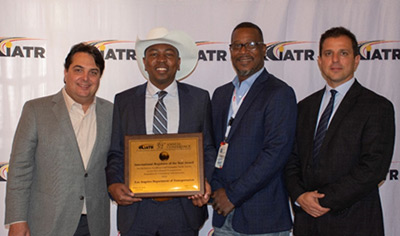 L to R: IATR President Matt Daus, IATR’s 2019 Regulator of the Year Jarvis Murray, IATR Board Chair Carlton Thomas, and IATR 2019 Conference Host Abdul Rafih
Calgary, Alberta —The 32nd annual conference of the International Association of Transportation Regulators (IATR) welcomed transportation professionals from around the world between September 22-25. The four days were filled with networking opportunities, an array of education from bootcamps to workshops, and plenty of opportunities to enjoy the local offerings.
L to R: IATR President Matt Daus, IATR’s 2019 Regulator of the Year Jarvis Murray, IATR Board Chair Carlton Thomas, and IATR 2019 Conference Host Abdul Rafih
Calgary, Alberta —The 32nd annual conference of the International Association of Transportation Regulators (IATR) welcomed transportation professionals from around the world between September 22-25. The four days were filled with networking opportunities, an array of education from bootcamps to workshops, and plenty of opportunities to enjoy the local offerings.
The first day kept pace with the city of Calgary’s slogan, “Be part of the energy,” with a record number of attendees participating in the bootcamp sessions. To help bridge the information gap between American and Canadian laws and regulations, the IATR curated its program to incorporate experts and speakers from both the U.S. and Canada who led training seminars on transportation law enforcement, driver training, meter regulation, and transportation insurance—the latter of which featuredexperts from the likes of New York City Black Car Fund.
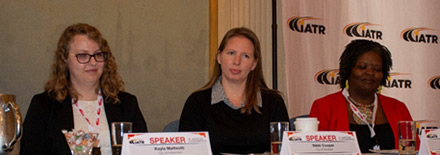 Sister City Panelists (L to R): Kayla Matteotti (City of Edmonton), Nikki Cooper (City of Houston), and Mary Mitchell (City of Seattle)
Sister City Panelists (L to R): Kayla Matteotti (City of Edmonton), Nikki Cooper (City of Houston), and Mary Mitchell (City of Seattle)
Day Two started with thekeynote speech from Councilor Diane Colley-Urquhart, who has served on Calgary’s City Council as a Ward Councilor, City-wide Official and Deputy Mayor for nearly 20 years, and is now in her seventh term as an elected official. Councilor Colley-Urquhart champions initiatives to improve the lives of Calgarians and has made wellness, prevention, community safety, and security hallmarks in her elected role.
The rest of the day was dedicated to various panel discussions. Officials from the city of Calgary presented the history and current status of transportation mobility governance, regulations and issues affecting passengers and industry stakeholders, along with representatives from Houston, Edmonton, and Seattle—Calgary’s sister cities—providing feedback and advice for Calgary’s “Smart City Plan.” The following two panels addressed the “Innovative Regulatory Frameworks—The Future of Mobility”and “Regulator Star Trek—The Next Gen of Mobility Management Professionals.”
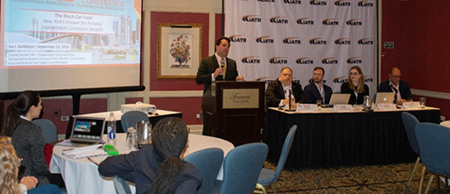 IATR President Matt Daus introduces Transportation Insurance Primer Panelists (L to R): Ira Goldstein of New York Black Car Fund, David Pooser of the Institutes Griffith Insurance Education Foundation, Sasha Ozeran of inDriver, and Ramy Dasuki of HUB International Insurance Brokers
IATR President Matt Daus introduces Transportation Insurance Primer Panelists (L to R): Ira Goldstein of New York Black Car Fund, David Pooser of the Institutes Griffith Insurance Education Foundation, Sasha Ozeran of inDriver, and Ramy Dasuki of HUB International Insurance Brokers
The third day focused on a wide-range of issues affecting the future of mobility in a fast-changing business environment, included a discussion on the socio-economic and regulatory impacts of automated and connected vehicles, and various breakout exploring the future implementation and introduction of shared automated and connected vehicles. The benchmarking and best practices blueprint from one of the day’s all-day sessions will be used to formulate IATR’s Model Regulations for Automated Transportation, which will result in the drafting of such regulations before the 2020 IATR conference, during which there will be an international public hearing to provide final comments.
On the final day, discussions included both the genesis and ongoing impact of major changes in the gig economy workforce, exploring new apps, and meetings of the Technology and Innovation, Canadian Regulators, Accessible Transport, Safety, and TNC Working Group committees.
Throughout the event, awards recognized a few attendees’ accomplishments:
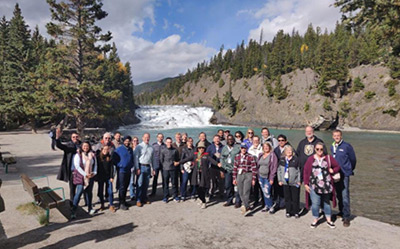 Attendees spent an afternoon exploring the Canadian Rocky Mountains in the town of Banff
Attendees spent an afternoon exploring the Canadian Rocky Mountains in the town of Banff
* The winners of IATR’s Fourth Annual Hack-A-Thon were Assel Dmitriyeva and Reuben Juster, who traveled from Kazakhstan and New York City, respectively, on behalf of New York University (NYU). Their “smart city proposal” focused on how Calgary and other cities could decrease the negative impacts of TNCs without limiting people’s mobility options. They ultimately proposed a Dynamic Ride Sharing System, which encouraged riders with the same origin to pair their trips if both can be conveniently served with one vehicle;
* IATR’s 2019 International Driver of the Year was awarded to Jass Tatla, a well-respected driver from Checker Transportation Group who has, since 2009, displayed a high level of professionalism and sincerity, possessed a positive attitude, and ensures that he delivers the best possible service; and
* The 2019 Regulator of the Year award went to Jarvis Murray of the Los Angeles Department of Transportation (LADOT), who has been the Taxicab Administrator for the City of Los Angeles since 2016 and whose accomplishments include overseeing a Taxicab Study along with his colleagues at LADOT.
IATR’s 33rd annual conference will be in Memphis, Tenn.
Visit iatr.global for more information.
[CD1119]
- Details
- Category: Industry News
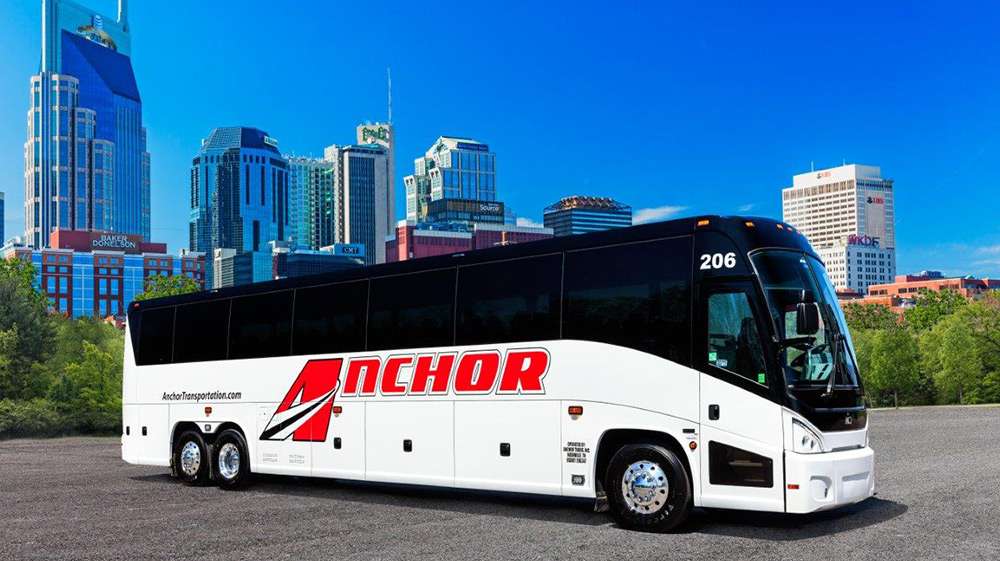 Anchor Transportation’s new MCI J4500 motorcoach
Des Plaines, Ill. —Motor Coach Industries (MCI) has delivered six new MCI J4500 coaches to long-time customer Anchor Transportation.
Anchor Transportation’s new MCI J4500 motorcoach
Des Plaines, Ill. —Motor Coach Industries (MCI) has delivered six new MCI J4500 coaches to long-time customer Anchor Transportation.
Based in the upcoming 2020 UMA Motorcoach Expo hometown of Nashville (January 19-23), Anchor recently inaugurated the J4500 model into its fleet, adding a total of 13 amenity-filled J4500s over the past two years, increasing its fleet size and capacity.
“We’ve introducing the J4500, which is a new model for us, to better meet the demands of our clients,” said Ancor Vice President and General Manager Jared Stancil. “We like the luxurious wow factor the model offers our passengers, and both our university and tour clients are pleased with the large luggage bays, the unique stairwell entry, and the spacious seating and good-looking interior.”
Anchor’s newest J4500s carry full entertainment systems, in-cabin Wi-Fi and power outlets at every seat, woodgrain flooring, and backup cameras.
Anchor, with over 90 motor coaches and minibuses, is a Top 50 passenger carrier as ranked by METRO Magazine. The company was founded in 1989 by Drs. John and Yullie Stancil in Murfreesboro, Tenn. They applied their set of core values to start a business with a single coach so area church groups could travel where they’d like. More coaches followed, as did a move to Nashville. Their nephew Jared joined the growing company in 1999, learning the business from the ground up and paving a future path by continuing his relatives’ passion for service while expanding into surrounding states.
This customer- and employee-centric company works with students, churches, military personnel, and with shuttle system clients at airports, convention centers, hotels, special events and park-and-ride locations. It now employs 175 employees in multiple office locations including a 10-acre headquarters site and facilities in Kentucky, Tennessee, and Alabama.
Its fleet include a mix of newer and older coaches to maximize fleet productivity and profitability and a significant number of those coaches have been built by MCI.
“We learned very early that investing in quality is essential to building a company,” said Stancil, “You’re not only transporting people. Investing in the best equipment gives you a reputation for reliability, too.”
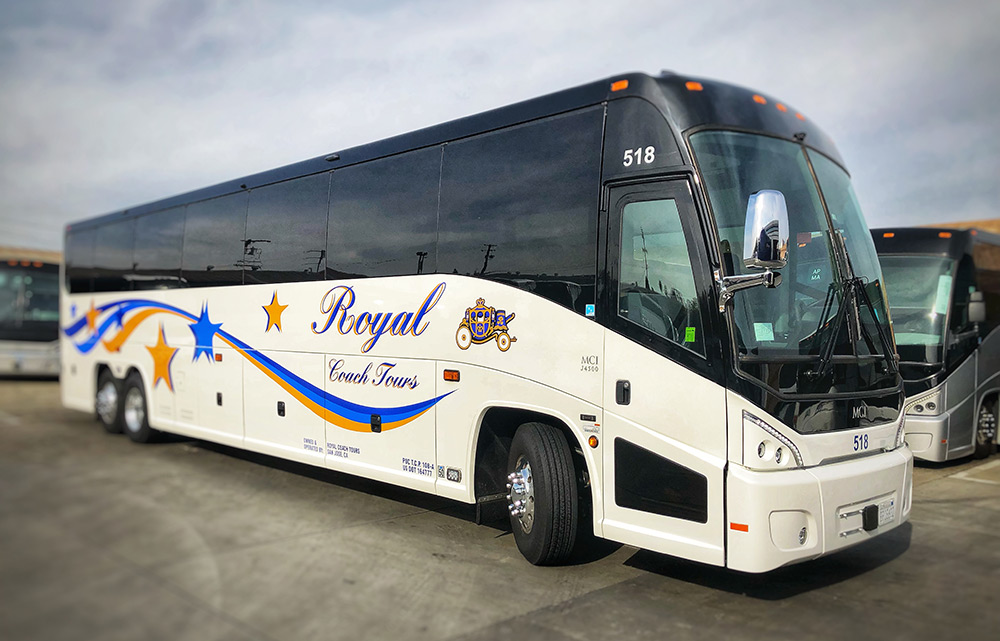 Royal Coach Tours recently added this MCI J4500 to their fleet
Royal Coach Tours recently added this MCI J4500 to their fleet
Safety is a high priority. Anchor has won the President’s Circle Award for Risk Control from TRAX Insurance for three consecutive years. The TRAX Award is given to only a few operators for their safety procedures, policies and facilities, participation in risk management and safety workshops, compliance with OSHA regulations and overall accident record.
In other news, Royal Coach Tour of San Jose, Calif., is marking its upcoming 60th anniversary year with a recent delivery of a 2020 MCI J4500 coach.
Royal Coach has served the Bay Area since 1960 and now operates a fleet of 97 vehicles. In 1999, Royal Coach pioneered now-common employee transportation coach service in the Silicon Valley to help a major employer cut the use of cars. Royal Coach Tours gives daily rides to thousands of this client’s employees from several pick-up locations around the Bay Area, dedicating 50 of its 97 coaches to the service.
And befitting the technology industry, this client’s employees can track the on-time performance of their coach by app.
And Royal Coach is expanding, recently opening a second location in Las Vegas. Its new Nevada base serves the tourism and entertainment capital and nearby destinations including the Grand Canyon, Hoover Dam, and Red Rock Canyon.
“We want to be a strong, regionally based presence in both our Bay Area and Las Vegas locations,” said Royal Coach President Sandy Allen, who is the second generation to run the family business with her brother Dan Smith. “We’ll offer the same services in both cities, including corporate shuttles, special events, weddings, airport transfers and expanded excursions to popular nearby destinations.”
In the Bay Area, Royal offers trips to several Northern California destinations, such as Napa Valley, the Monterey Bay Area, Santa Cruz, and the Central Coast, as well as longer trips to Sacramento, Los Angeles, Reno, Lake Tahoe, and, of course, Las Vegas.
Allen’s team ordered its newest J4500 for its industry- leading legroom and all the latest features. The 2020 J4500 offers the new, next-generation, lighter weight Cummins X12 engine and a new e-Fan system for even greater gains in fuel economy. Royal added such optional amenities as power outlets at every seat, customized interior lighting for groups and special branding and MCI’s latest Advance Driver Assistance System (ADAS) package to assist drivers on the road with the most advanced collision mitigation technology available in today’s motor coach industry.
“We waited for the new Cummins engine and we like the direction MCI is taking with the improvements they have made to the J4500,” said Allen. For most of its history, Royal Coach has bought MCI models with the luxurious J4500 used exclusively on its employee transportation routes.
“We’re very proud to serve Royal,” said MCI Vice President of New Coach Sales Patricia Ziska. “And like all current and future MCI customers, we’re dedicated to serving Royal reliably. MCI’s history with Sandy Allen and Dan Smith extends back to the 80s, and we are thrilled to celebrate their 60th anniversary with the delivery of their latest new high-end J4500 for operation in their Las Vegas office.”
Visit mcicoach.com for more information.
[CD1119]
- Details
- Category: Industry News
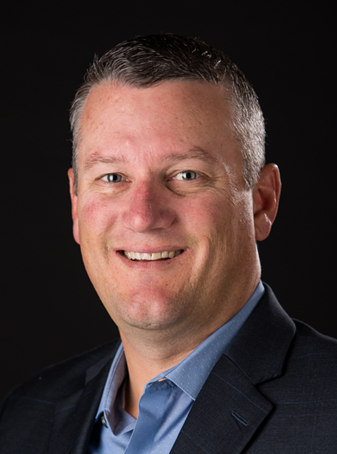 NLA President Gary Buffo of Pure Luxury
Marlton, N.J. —The NLA is proud to share that the op-ed "Uber Must Stop Veering From the Truth" by NLA President Gary Buffo has been featured by the San Francisco Chronicle—the largest newspaper in northern California and the second largest on the West Coast.
NLA President Gary Buffo of Pure Luxury
Marlton, N.J. —The NLA is proud to share that the op-ed "Uber Must Stop Veering From the Truth" by NLA President Gary Buffo has been featured by the San Francisco Chronicle—the largest newspaper in northern California and the second largest on the West Coast.
The article questions Uber's main arguments against CA AB-5 and request Uber to corroborate its position with proof. “Uber claims its drivers don’t want Assembly Bill 5, even though every other sign points otherwise, so it’s time for Uber to show us the receipts," stated Buffo.
The full article can also be accessed here, and is also included below:
“Uber claims its drivers don’t want Assembly Bill 5, even though every other sign points otherwise, so it’s time for Uber to show us the receipts.
For context, a little over a month ago AB5, also known as the Gig Economy Workers Bill, was signed by Gov. Gavin Newsom to the applause of workers’ organizations and business owners around the country. The bill was one of the most definitive actions yet by a state government to protect vulnerable workers against companies that have actively worked to misclassify them as independent contractors.
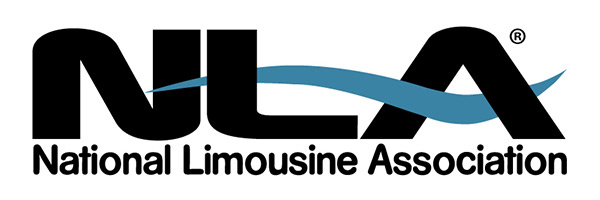
Of these companies, the most prominent among them has been Uber, which spent millions of dollars lobbying against the legislation, launched targeted misinformation campaigns toward its drivers and the public, and is still working to weasel out of the law’s jurisdiction.
Behind this maneuvering, Uber maintains two arguments: the first is that the law doesn’t apply to its business because it’s a technology platform rather than a ride-hailing service, and by extension that its “drivers’ work is outside the usual course of Uber’s business.”
This positioning not only runs counter to the obvious truth, but also to Uber’s boilerplate response to any negative story on its labor record: “Drivers are at the heart of our service — we can’t succeed without them.” Uber today is rapidly diversifying and integrating the various parts of its business to demonstrate its lack of a “heart,” as seen by its grocery acquisition, new inefficient helicopter service, expansion into a hiring business, Uber Freight expansion, and recent app overhaul and integration between Uber and Uber Eats.
The second and even more dubious argument Uber maintains is that, while the law does not apply to its model, if it did, its drivers still ultimately do not wish to be classified as employees.
This argument flies in the face of the massive nationwide protests by ride-hail drivers demanding employee classification. In fact, this audacious claim is supported only by official Uber statements and Uber-funded groups.
One of the most recent of these claims was when Uber purported that its drivers expressed, “through focus groups and surveys, that they don’t want to be employees.”
The company makes this claim in the context of having been bribing a Florida politician, hiding massive user data breaches in 2017, and being widely accredited with inspiring AB5 by its inability to protect and properly pay its workers. This is a transportation company that has so poorly protected its passengers that it opted to add a panic button to the app rather than adopt comprehensive fingerprint-based background checks nationwide.
We call upon Uber to simply release the focus group footage and survey questions, along with their associated contexts. We believe it will be immediately evident how exactly it manipulated its workers and subsequently shaped their responses.
It is plainly obvious that while drivers are at the core of Uber’s business model, truth and righteousness are not.
So, Uber, show us your receipts.”
Visit limo.org for more information.
[CD1119]

